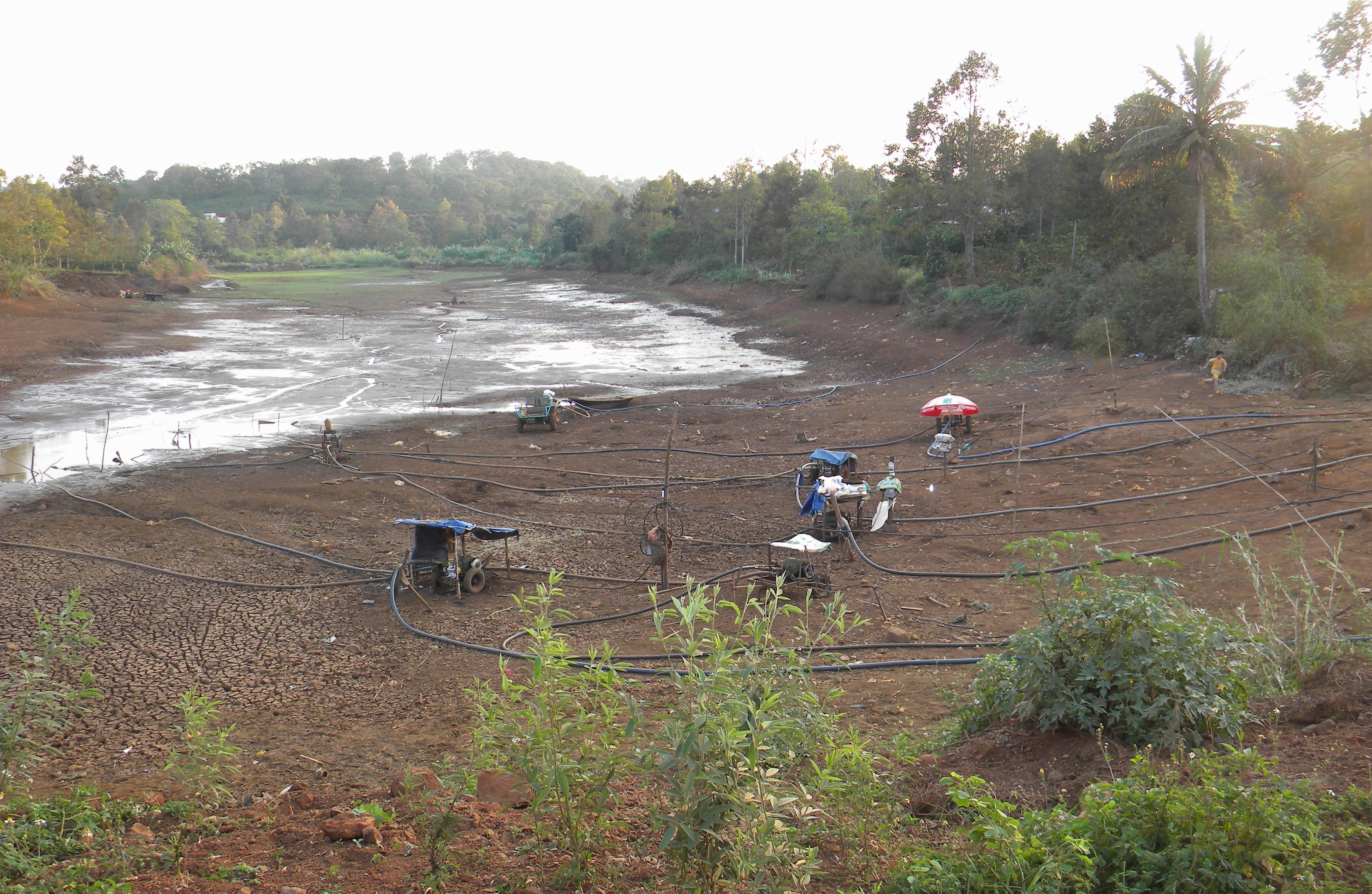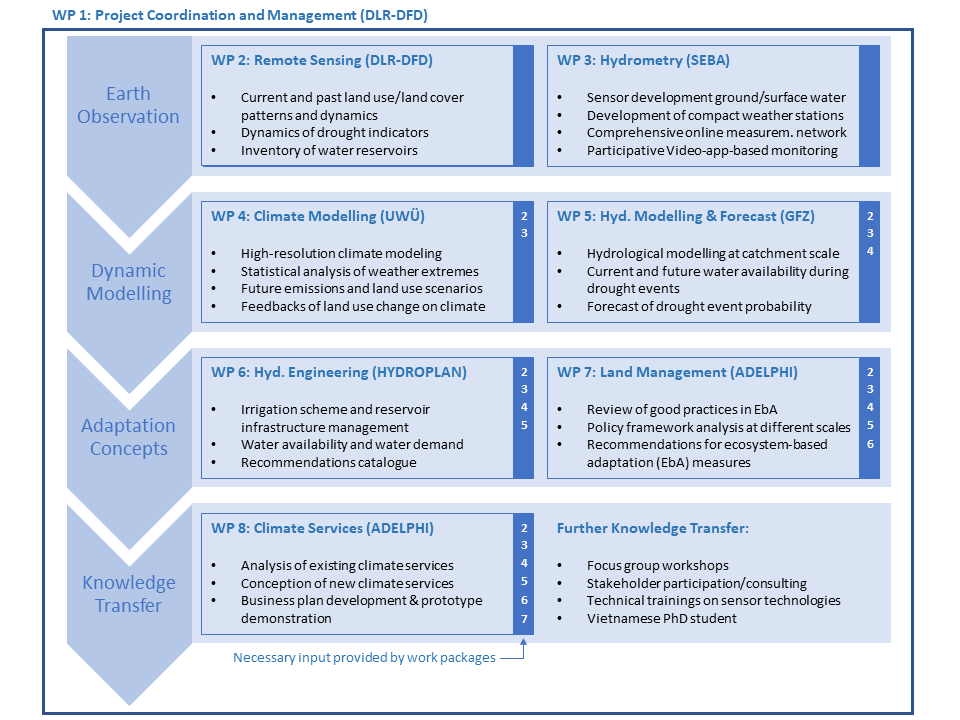Drought-ADAPT: Final event in Ho Chi Minh City
 © Drought-ADAPT Projekt
© Drought-ADAPT Projekt
Coordinator: Deutsches Fernerkundungsdatenzentrum des Deutschen Zentrums für Luft- und Raumfahrt e.V. (DLR)
Contact Person: Dipl.-Ing. Juliane Huth
Address: Münchner Str. 20, 82234, Wessling
Phone: +49 8153 28-3281
Email: juliane.huth(at)dlr.de
Project partners in Germany
Project partners in Vietnam:
Today, Vietnam is one of the countries most affected by climate change – extreme events such as El Niño and subsequent droughts particularly impact the Central Highlands, one of the country's most important agricultural regions. To develop appropriate adaptation measures, there is a need for accurate and up-to-date information on future regional climate conditions, water availability, sustainable irrigation techniques and infrastructure for climate-smart agriculture as well as improved information mechanisms – before, during and after drought events.
The Central Highlands are one of Vietnam's most important agricultural regions, growing coffee, rubber, pepper, cashew nuts, vegetables, and fruits, all of which are in high demand and have tremendous export value. At the same time, Vietnam is one of the countries most affected by climate change, with the project region in the Central Highlands already sensitive to extreme weather events, such as those caused by El Niño. El Niño events typically occur every two to seven years and often result in severe droughts during the dry season in the project region. These in turn have a significant impact on agricultural production as well as the environment and the socio-economic sector. The impact of anthropogenic climate change could exacerbate this.
Drought-ADAPT aims to develop innovative approaches to support short-, medium-, and long-term planning and adaptation measures to drought situations and their impact in the context of climate change. The project acts at different levels:

The following project activities aim to achieve the project's objectives:
The project team aims to realise these objectives through innovative methods and combined approaches in the fields of remote sensing, meteorology and hydrometry; climate and hydrological modelling; engineering and planning; and land management and policy consultation (see Figure 2). Corresponding solutions will be developed in close cooperation with Vietnamese partners from academia and both for and with provincial authorities responsible for the Sre Pok catchment area in the two provinces of Đắk Lắk and Đắk Nông in the Central Highlands of Vietnam.

 © Drought-ADAPT Projekt
© Drought-ADAPT Projekt
 © Drought-ADAPT Projekt
© Drought-ADAPT Projekt
 © Drought-ADAPT Projekt
© Drought-ADAPT Projekt